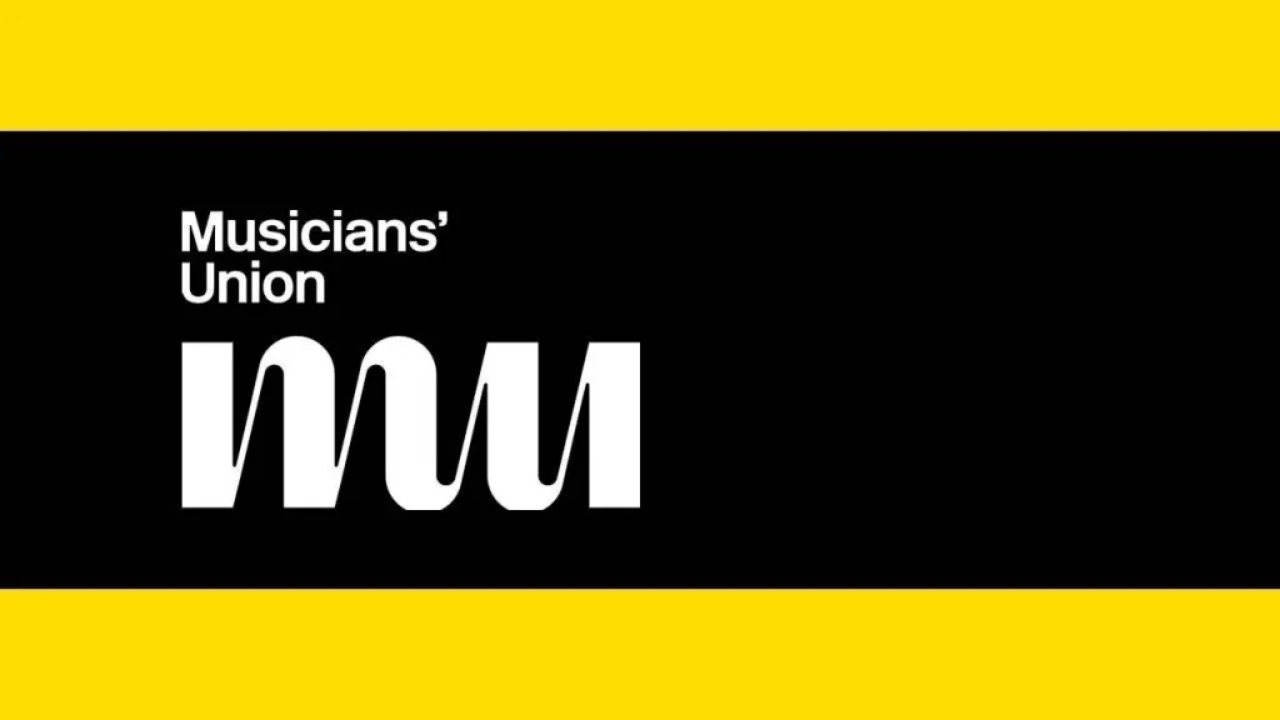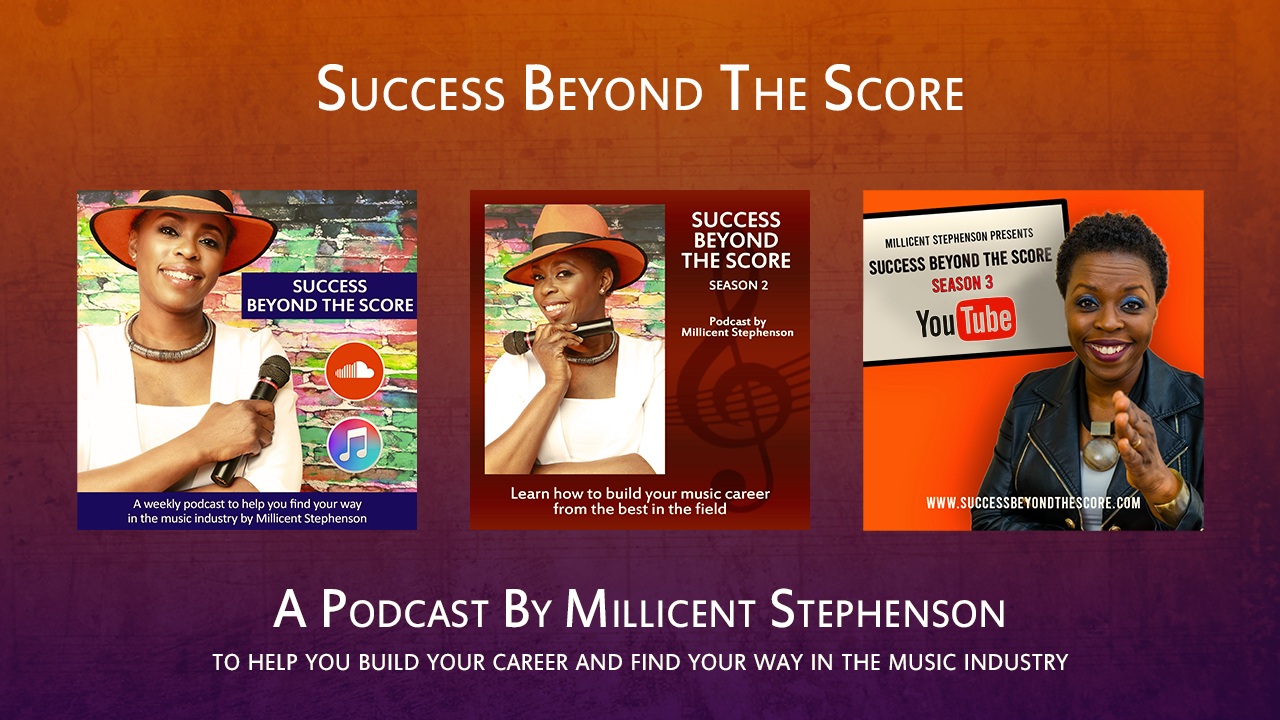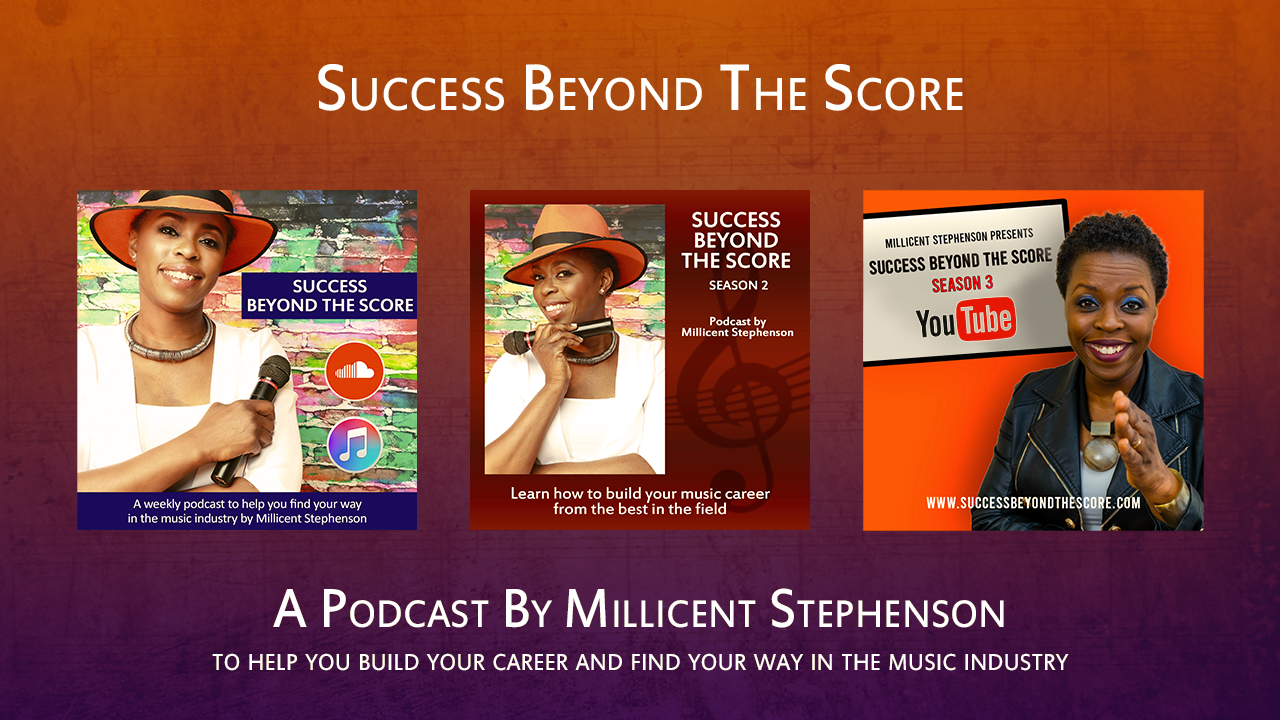Thank you for filling our survey

In order to improve and diversify the offer for you in Success Beyond The Score, during autumn we conducted a survey about your preferences regarding short courses and coaching sessions. Your answers helped us understand what format, duration and prices are best for you. Now, we are developing our offer to welcome 2026 with new material to boost your career.
Your input is very valuable to us. Thank you for giving us the chance to tailor our products to your needs. Now, while we get ready to launch our new offers, let us remind you of the resources currently available on our website:
- Podcast: Three seasons packed with information about the music industry by Millicent and other professionals with decades of experience.
- Freebies: Get valuable insights on the music industry at no cost.
- E-learning opportunities: From stage craft to backing tracks production, these paid courses will equip you with everything you need to develop as a gigging musician or singer.
- Time For My Music: an on ...
Turn notifications OFF

Every new app and website we visit asks the same question: "do you want to activate notifications?" The options come next: for news, for offers, for purchases, for chats. To your e-mail, through messages, or pushed directly to your device. Allow them all, or even a number of them, and you will soon find yourself flooded by pings and buzzes calling for you 24/7.
The currency of social media is your attention. Ultimately, all these digital service providers are after your time. They deploy different strategies to keep you looking at your screen, from presenting their content and tools as games where you lose points if you don't "play" every day, to linking themselves with notions like friendship or responsibility, so you feel guilty if you are not available at all hours.
The truth is that you are the owner of your time, and you are under no obligation of giving any part of it to the internet. As the companies behind social media and online platforms are actively seeking your attention,...
Never skip the sound check!

One of the things that I learned in the early stages of my music career is the importance of having a sound check.
In the early stages, I would turn in at the start time of the event with my instrument, put it together while I was in my seat, go on stage when my name was called, and play. This made it so I didn't normally get the sound experience I hoped. Fast forward to today, when I arrive 90 to 60 minutes before the starting time of the performance, depending on whether I’m bringing my own PA. I make sure that my sax mic is working, that my setup is correct and that my tracks work. Then, I walk around the stage in order to identify any zones where the signal of the radio mic may drop or stutter, or where feedback could be generated.
This is how I can guarantee a good sound and therefore a good experience for my audience. To illustrate, here is a little clip of me doing a sound check before playing Kingston Town at an event this summer:
BAPAM: Medicine thought for performance artists

As a musician, you may notice that, some times, parts of your body do not respond as quickly as they used to when delivering your music. If you are a singer, you may find that your vocal range has changed or diminished. As a violinist, you may experience pain in your neck and shoulders. Drummers may be familiar with stiffness and soreness on the knees and shins. Every instrument comes with particular challenges to the body and mind that can take a toll.
In Millicent's case, there was a moment when playing the piano brought her difficulties in her hands. She experienced pain on her fingers, and the knuckle joints would cramp or lock. At the time, she got an e-mail from the Musicians' Union, saying that a doctor specialised in musicians' ailments would visit Birmingham soon, and that members could book an appointment if needed. That's how she got in contact with the British Association for Performing Arts Medicine (BAPAM).
The professionals at BAPAM corrected the diagnosis given by Mil...
Media composers, please answer the Fair Score's survey!

Fair Score is a joint campaign between the Musicians’ Union and The Ivors Academy, which seeks to ensure fair commissioning in media composition. It fights against coercive buyouts, opaque pitching processes, and deals that violate composers’ rights.
In a first survey conducted during 2019, the predecessor of Fair Score found that 35% of the surveyed media composers had accepted buyouts or work-for-hire deals. This means that, instead of receiving a commissioning fee upfront and royalties over time, they got a one-off fee and nothing else. This endangers the livelihood of composers, as they are deprived of long term income sources.
The same survey revealed that 41% of the surveyed composers gave up more mechanical rights than they wanted to, and 64% affirmed they believed the commissioning environment is coercive. This is unsustainable and harmful for the industry, even more now that commissioners count on the threat of generative AI to put pressure on media composers.
It’s importan...
World Menopause Day 2025: Lifestyle Medicine

Today is World’s Menopause Day, when people around the world raise awareness and share their experiences in regard to this natural stage of human life. For the occasion, this year, the International Menopause Society published the 2025 White Paper, The Role of Lifestyle Medicine in Menopausal Health: A Review of Non-Pharmacologic Interventions. There, they show strong evidence, gathered across multiple studies, that point at how healthy habits in daily life can make a real difference in the well-being of menopausal individuals.
This idea aligns neatly with Millicent's own experience as a menopausal musician. When I joined the Smarter Change 12 weeks programme with Pamela Windle, we focused in making healthy lifestyle changes tailored to the specific needs and workings of my body. That’s why I wore a blood sugar monitor for weeks, in order to learn exactly which foods favour my metabolism, and what is the best time to eat for me. We looked at how to optimise my sleep patterns within th...
Listen again to S1, E7-9 of the podcast Success Beyond The Score

This time, we want to highlight a series within the first season covering a topic that's always relevant: music bands. How to decide between being in a band and working solo, how to manage conflict and stay creative and productive, it's all in these three episodes of Success Beyond the Score:
7. Is it time to leave the band and go solo?
Are you at a crossroad, wondering whether to leave your band and go solo? Maybe solo work isn't for you. Today a new series begins exploring the pros and cons of being in a band or working solo.
8. 10 rules for band wars.
Tearing your hair out because your band just don't get it? Too many conflicts but no clear path towards solutions? Check out these 10 tips to help you see the woods for the trees in your band.
9. Band Wars – Why the fuss gets really personal quickly
There are days when getting through the rehearsal or even the gig is hard going because of the wars between members. But why does the fuss gets really personal quickly? Wh...
Listen again to S1, E4-6 of the podcast Success Beyond The Score

While the first season of the podcast Success Beyond the Score is already a few years old, it contains valuable information and perspectives that are still helpful. Today, we want to highlight episodes four to six of season 1, which are connected as a series to talk all about business cards:
4. Should I get business cards?
Should I get business cards? When I should get them? This is the first of a three part series about business cards for musicians, singers, rappers and spoken word artistes finding their way in the music industry.
5. What should I put on my business cards?
7 Tips for what should be on your business card - Printing on both sides of the card; Type of Picture; Write-on side; Card weight; Font Size; Card size; and Text content. This episode also includes bonus tips!
6. 10 points of etiquette for managing your business cards.
What is the best way to give away your business cards? Should you give them to everybody? These questions and more are answered in today's ...
A short survey to help us offer you the resources you need

Success Beyond the Score is a project born from Millicent's willingness to support men and women in their music journey. Through her podcast, mentoring, courses and resources, she has already helped people at different stages of their careers to achieve their goals.
Last month, she talked about the what, why, how, when and where of creating and achieving your vision in music. The only question left to answer is "with whom". We aren't born knowing! Having mentors or teachers is an essential part of taking our craft to where we want it to be. That's why Millicent is putting together a new way to guide and support singers and musicians in their journey. In order to assist with that, we are currently conducting a survey to assess the topics of greatest interest among our audience, and how you'd like to learn about them.
Click here to start the survey.
It will take you at most five minutes, and you will get a gift to thank you for your time at the end. Your contribution will help us unde...
Create and Achieve your Vision, part 4: The When and Where

First, we defined the what, then, the why. After that, we looked at the how, and that defined almost everything for us. Now, we just need to make the time and space to execute our plan, and we will achieve our vision.
This sounds easy, and it would be in a world less congested, noisy and stressful than the one we live in. We have responsibilities with our family, friend and community. We have jobs and maintain a home. The technology that's supposed to assist us more often than not becomes an addictive distraction, bombarding us with notifications that demand our attention 24/7. It's challenging to catch a breath and have time for ourselves.
Despite all this, it's possible to make time and space for our vision by working smarter, not harder. Don't sacrifice sleep or overexert yourself, that will only lead to health issues and burnout. Instead, keep your priorities at the forefront of your mind, and use them to take decisions. You are the owner of your attention, your energy and your ...